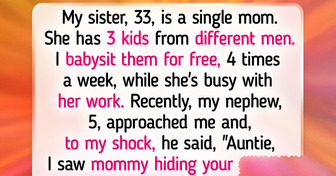My Ex Wants Me to Be a Surrogate Because He Doesn’t Want to “Ruin” His Wife’s Body


Families are meant to be a source of love, support, and connection—but they can also be complicated. While many people enjoy close relationships with their in-laws, others find themselves facing tension when boundaries aren’t respected. For some, what should be a joyful occasion—like a family vacation—can quickly turn into a source of stress and disappointment.
My husband and I planned a quiet vacation a long time ago. We told my in-laws and close relatives about it. Everything was perfectly planned.
But when the moment arrived, I felt something was off—strange calls, unexpected messages. And out of nowhere my MIL showed up telling she wants to visit a friend nearby.
I tried to stay polite, hoping she’d eventually give us space. But just as we were about to leave, she smiled and said, “I’ve decided—I’m coming on vacation too.”
I told my husband how disappointed and upset I felt, but he didn’t see a problem. He tried to justify his mother’s behavior.
At the last minute, my mother-in-law changed her mind, and we ended up going on our vacation without her—but I couldn’t stop thinking about what had happened. My husband insisted she didn’t mean anything by it and said I was overreacting, which only made me feel more alone.
After that, every time she visited, I felt the distance between me and my husband. It was like her presence triggered something in our relationship, slowly chipping away at our bond. Was I wrong?
This is a deeply emotional and complex situation, and your feelings—of guilt, exhaustion, confusion, and love—are all valid. Here are thoughtful, practical pieces of advice that may help you find clarity and a way forward.
Our emotions are like our internal compass, helping us to figure out how a situation makes us feel. You’re not overreacting for feeling upset. Your vacation was disrupted by unexpected behavior, and feeling invaded or dismissed is a legitimate emotional response. Recognize your feelings as valid, even if others don’t immediately understand them.
Rather than pushing for validation at the moment, wait until you’re both calm and then share how his reaction made you feel. Focus on how you felt rather than what he did wrong—this helps avoid defensiveness and opens up more honest conversation. Good communication is an important part of all relationships and is an essential part of any healthy partnership.
Even though she didn’t come along, the emotional disruption lingers. Allow yourself time to process it—but also permission to let it go. Holding on to resentment only weighs you down.
Try to redirect your energy back toward joy, rest, and connection. Allowing precious time for ourselves should be integral to all our routines. Ideally, short periods of time should be dedicated to an activity that you do on your own, and you should aim to do this on most days.
Family dynamics can be messy, but they also offer opportunities for growth, understanding, and stronger connections. With honest communication and healthy boundaries, even the most frustrating moments can lead to deeper respect and resilience. In the end, it’s love—and learning—that keep us together.











